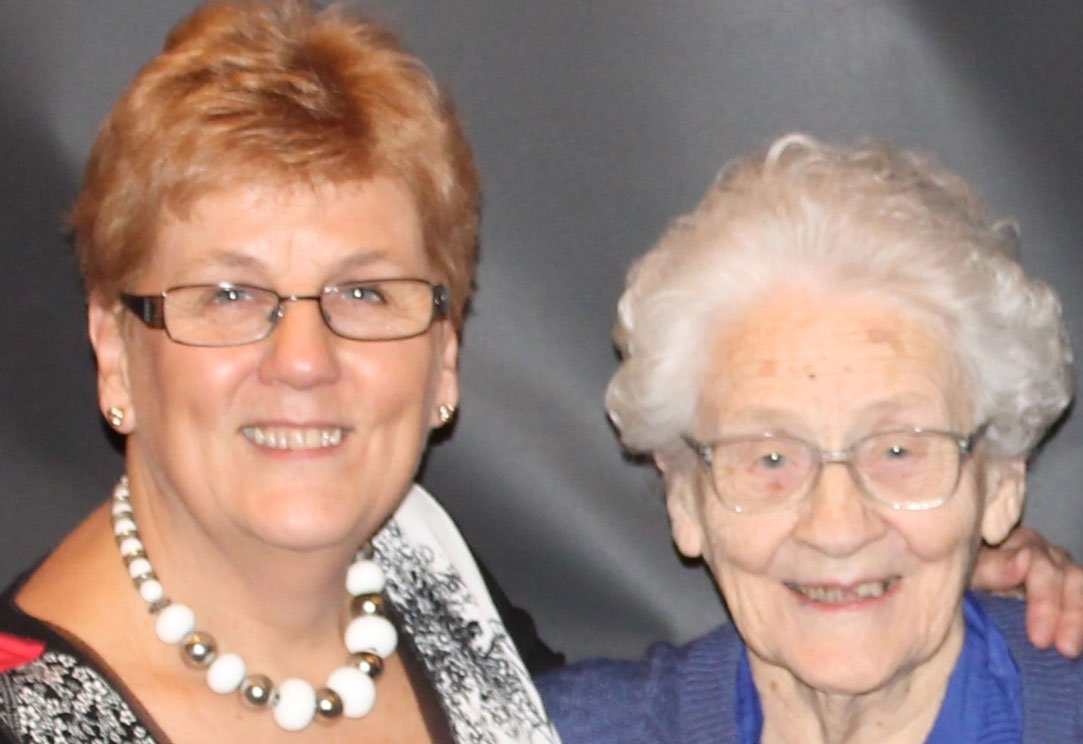“Mum was on her death bed and we expected she could die that night. When I walked in the next day, I was astounded to find her sitting in the dining room having breakfast. As soon as she saw me her face lit up and she said to others at the table, ‘That’s my daughter!’ It was such a thrill that she had that lucid moment at that time.”
Shirley Spear’s mother, Gwenda Gear, died aged 96 in January 2019 of advanced dementia. Shirley assisted the aged care staff with Gwen’s care during her long illness.
She contacted the Melbourne City Mission Palliative Care Service when Gwenda needed more advanced care. “They were brilliant. Marion, a palliative care nurse, visited mum personally the same day to assess her care needs,” says Shirley. “She explained what was happening physically to Mum and what to expect as her condition deteriorated, so we were fully informed. Her compassion and empathy were outstanding.”
“Knowing and following Mum’s wishes was very important”
Five years before, Gwenda’s doctor had advised them to discuss her end of life care wishes and prepare an advance care plan.
“Mum and the family agreed that she should stay in the aged care home and not be sent to hospital. We wanted her to be comfortable, free of pain and in familiar surroundings. Mum didn’t want to die in hospital.
“She suffered very badly from dementia. Any move away from her familiar places resulted in her total bewilderment and becoming very anxious. You could see the fear on her face and in her agitation. Admissions to hospital were terrible for her,” says Shirley.
“I discussed Mum’s end of life care wishes with Marion, who reassured me we were making the right decision in respecting Mum’s wishes to die at home. Her explanation of what would happen as her dementia reached the end stage helped us to know and understand what to expect,” Shirley recalls.
Expert help avoided hospital
During the last fourteen weeks of Gwen’s life, the palliative care nurses provided expert advice to the aged care staff caring for Gwen. They helped to relieve her pain and distress and reassured the family they were making the right decision in abiding by their mother’s wishes.
“I am one of five siblings and we were all in agreement even though the final decisions fell to me as Mum’s Medical Power of Attorney. The palliative care staff listened to my fears and doubts and reassured me we were not hastening Mum’s death by medicating her to keep her calm and pain free and by not sending her to hospital. That reassurance helped tremendously when self doubt set in. Having access to them any time, day or night, gave me the courage to stay true to Mum’s wishes,” says Shirley.
With the expert help of the palliative care nurses, the family and aged care staff met Gwen’s wishes to avoid hospital and to die in comfort.
“Mum had the best care and a comfortable passing, which is all we could ask.”
Palliative care helpful for people with advanced dementia
The death of her mother has prompted Shirley to encourage others to learn more about dementia.
“Dementia can be a very long, slow process and is a terminal illness. Eventually, towards the end you forget to eat and drink, you forget to swallow. These were the stages Mum had reached.
“Mum was showing signs of dementia in her eighties. Early indicators were loss of memory, loss of tact, she would miss meals and there were signs she was possibly taking too many pills,” says Shirley.
“I noticed Mum was isolating herself. She would stay in her room instead of going out and enjoying activities on offer as she had before.”
Shirley believes there is a need for more awareness of the role of palliative care services in the aged care sector.
“They can provide expert advice to help aged care staff with complex needs. This enables them to provide better care, avoid hospital admissions and support people to die well in a familiar environment. Of course they are also a tremendous support service for the family as well, providing advice, counselling and general support.
“It meant we could follow Mum’s wishes and it gave us peace of mind,” concludes Shirley.

